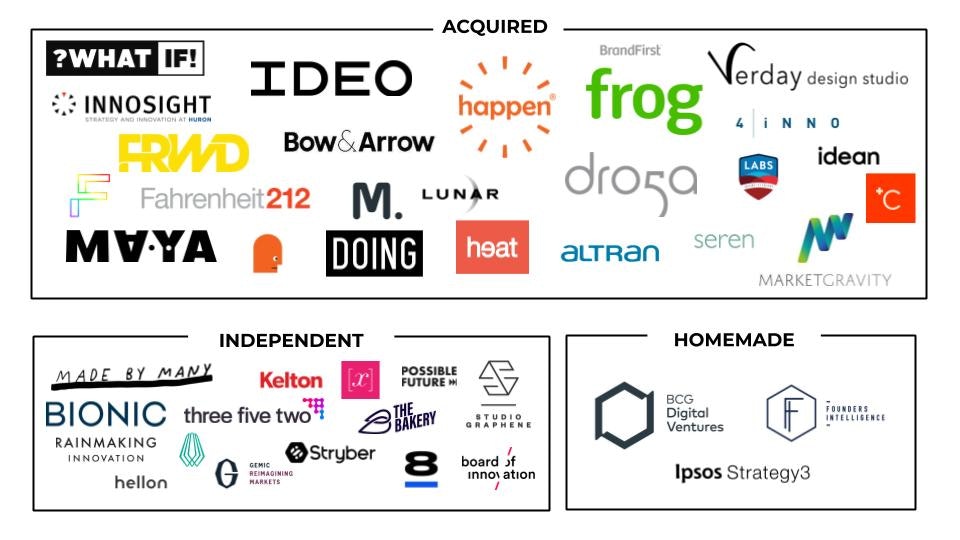Energy
Electricity for emerging markets
Total Energy Ventures invested in the $12m Series A funding round for SparkMeter, a startup developing technology to help utility companies manage electricity distribution and billing in emerging markets.
Financial services
Mobile banking
Helvetia Insurance was one of the backers of the €4.6m funding round raised by Swiss challenger bank Neon. Neon offers smartphone-based accounts.
Meanwhile, Santander Innoventures and Experian invested an unspecified amount into Bonify, a German startup that provides real-time credit ratings for users via mobile.
Food and drink
Personalised plant recipes
Dr Oetke, the German cake mix-to-frozen pizza group, and Miele Ventures invested in the €4m funding round for Plant Jammer, a Danish startup that creates plant-based recipes tailored for available ingredients and users’ own allergies and preferences.
Games
Getting children back into the real world
Lego Ventures was one of the backers of a £300,000 seed round for Caper, a startup developing an interactive smartphone app for families with children aged 4-9. The app combines screen and real-world adventures and was tested by more than 4,000 families looking for ways to entertain their children (and get them at least partially off screens) during lockdown.
Healthcare
Personalised medicine
Bayer invested $98m to increase its stake in One Drop, a New York-based company that provides tools to help patients manage complex long term health conditions such as diabetes, high blood pressure and high cholesterol. It is part of a push by Bayer to become a digital health company.
CAR-T alternative
Leaps by Bayer co-led a $55m Series A funding round for Triumvira Immunologics, a US-based startup that is developing an alternative to CAR-T therapies that direct the body’s own T-cells to attack cancerous tumours.
CAR-T therapies have side effects that can in some cases be life-threatening and Triumvira is working on what it believes will be a safer alternative. The company is expected to start testing the therapies on humans this year.
This is one of a number of cell therapy startups Leaps by Bayer has backed, including BlueRock Therapeutics and Century Therapeutics.
Real-world evidence
Sanofi and Johnson & Johnson Innovation were among the investors in the $19m Series B extension round for Aetion, a startup that helps pharma companies evaluate real world evidence (RWE).
In addition to conducting clinical trials, it is often important for drug companies and regulatory bodies such as the US Food and Drug Administration to collect data from real world sources like patient healthcare records, insurance claims and medical bills. 13 of the world’s top pharma companies are Aetion customers, and the startup has been working with the FDA since May to analyse RWE on Covid-19.
Antivirals
Novo Holdings took part in the $44m Series C funding round for ReViral, a startup developing novel antiviral therapeutics for respiratory syncytial virus (RSV), a common respiratory illness.
Goodbye colonoscopy
Novartis and Roche Venture fund were among a huge cast of backers for the $270m Series C funding round for Freenome, a US startup developing diagnostics that could detect colorectal cancer from a blood test, rather than needing a colonoscopy.
Legal services
Streamlining property sales
Mishcon de Reya took part in the €1.1m funding round for ThirdFort, a UK-based legaltech company that specialises in checking the source of funds and identities of the parties in a conveyancing deal. The company saw strong growth during the coronavirus pandemic and has increased the number of law firms that are clients from 100 to 450.
Mobility
Listed lidar
Luminar, the Volvo-backed maker of lidar technology used in self-driving cars, is going public through a $3.4bn merger with a special purpose acquisition company, Gores Metropoulos.
Luminar is the latest self-driving technology company to take this route to market — in June Velodyne Lidar went public through a similar route. It is a faster way to list on the stock market and allows companies to avoid some of the scrutiny they would have been subjected to during an IPO.
Space
Powering tiny spacecraft
Airbus Ventures was among the backers of the first VC funding round for Morpheus Space, a German startup developing propulsion systems for very small spacecraft.
Telecoms
Cybersecurity
Telefonica acquired Govertis, the Spanish cybersecurity consulting firm. Telefonica had already had a longstanding collaboration with the company and had originally invested in Govertis through Wayra, its open innovation hub.
Streaming
Sapphire Ventures (whose most notable LP is SAP) took part in the $50m Series A round for Restream, an Austin, Texas based startup that allows people to stream video to multiple platforms at the same time. Restream saw business grow more than 300% since the start of the year as people turned to places like Zoom, Twitch and Facebook to run virtual events and stay connected.
Who's hiring?
Director of Analysis and Innovation, Thomson Reuters Special Services, London, UK
Business Innovation & Growth, Two Sigma, London, UK
Product Strategy and Innovation Manager, Sainsbury's, London, UK
Workplace Transformation & Innovation Director, Ipsen Pharma, Boulogne-Billancourt, France
Senior Analyst Innovation Management, Deutsche Bahn, Berlin, Germany
Strategy Manager – Innovation PMO Metals, Henkel, Düsseldorf, Germany
Innovation & Co-creation Intern, IKEA Group, Milan, Italy
Global Laboratory Director, Essity, Göteborg, Sweden
Good reads
How to avoid consensus
Everyone knows that consensus and groupthink lead to terrible performance — and are lethal for innovation. But how do you avoid them? Business leaders can’t just assume that they have created a wonderful, secure environment where everyone feels free to voice dissent, you have to build structures to enable this, writes Greg Satell in Digital Tonto.
He suggests a couple of good techniques:
- Start discussions from the most junior person working up to more senior to avoid people just following the opinions of senior leaders.
- Conduct a pre-mortem on ideas, trying to find the fatal flaws before starting.
- Run a “red team”, an independent group whose sole purpose is to find flaws in a particular plan.
The death of the corporate innovation lab — and how that killed productivity
There was a huge cull of corporate innovation labs in the late 1990s, around the same time that antitrust enforcement was loosened in the US. This was no coincidental — why bother developing new products yourself if you can just acquire someone else’s innovation?
David Rosenthal dissects the research around this in his blog, and notes that killing corporate labs also resulted in a decline in productivity. We think of a VC-backed innovation model as highly effective, but outsourcing innovation can be a much less efficient use for resources. Corporate labs had many advantages in terms of access to resources and being close to real customer problems. Corporate labs used to be able to make breakthroughs at a price tag that wouldn’t be able to get a VC-backed startup through its first year.
This post is from a few months back, but is absolutely fascinating and has a great ongoing discussion thread that is worth joining.



